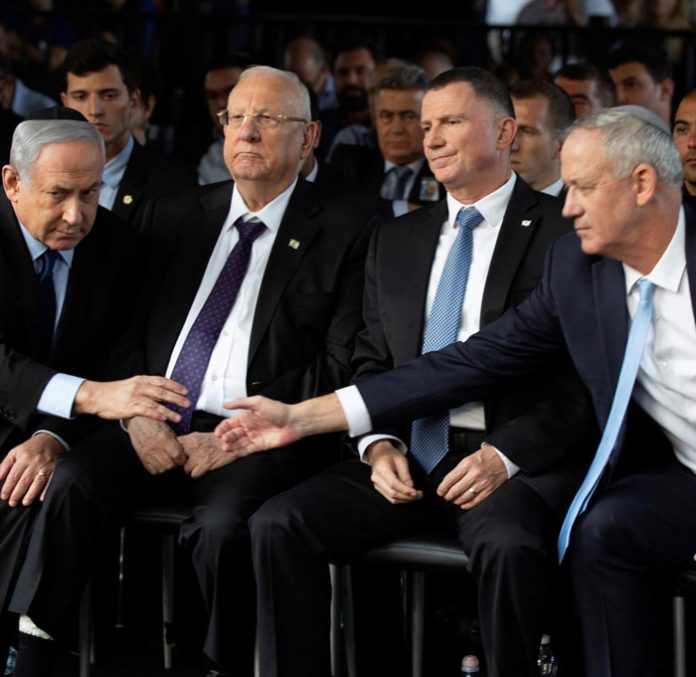Against all expectations and with all avenues closed off to him, at the end of this last week Netanyahu suddenly managed to convince his political rival, Benny Gantz, to join him in forming a government. Although there are still details that must be worked out before a final agreement, as of this writing most of the spoils have been divided. Naturally, there are winners and losers here, but at least half of Kachol Lavan will be making its way to a coalition agreement with Netanyahu.
The political pundits heaped superlatives on Netanyahu for pulling it off, but no one could quite explain how he managed it. How did he manage to retain his position as prime minister despite being under three indictments, failing to win a 61-seat majority in three consecutive elections, and facing a group of 61 MKs who were all against him?
Winston Churchill’s famous statement that “Politics is the ability to foretell what is going to happen tomorrow, next week, next month and next year and when it doesn’t happen the ability to explain why” applies here. Some pundits claim the relationship among the leadership of Kachol Lavan was always shaky and contentious, while others posit Kachol Lavan was too politically inexperienced to hold out much longer. And then there are those who credit Netanyahu’s political savviness. Perhaps all of these and other explanations are correct, but they are missing the dimension of the heavenly hand. Without the coronavirus pandemic it’s very doubtful that Netanyahu would have been able to get this done.
Since the virus began to spread in Israel shortly after the elections, Netanyahu has used the situation to form a government with Gantz, who had promised throughout his election campaign that under no circumstances would he ever join a Netanyahu government. But Netanyahu used the crisis to pressure Gantz into breaking his promise to the voters. “At this time Israel needs a national emergency government,” he kept saying
The fact that right now Israel is in a relatively good situation in its fight against the virus has made Netanyahu look good in the eyes of his detractors. Many politicians and the media praise the steps the government has taken. Polls have shown that even many Kachol Lavan voters believe their party should acquiesce to Netanyahu’s request and join his government.
Last week intense meetings were held between Likud and Kachol Lavan, with Kachol Lavan’s leadership divided between Gantz and Gabi Ashkenazi, who were interested in forming a unity government, and Yair Lapid and Moshe (Bogi) Yaalon, who strongly opposed any agreement with Netanyahu. At the same time, Kachol Lavan began moving forward with laws that would stop Netanyahu from running in the next election in case the negotiations end up failing. In order to do that, though, they needed cooperation from the Knesset speaker, but Speaker Yuli Edelstein of the Likud refused to do their bidding.
The next step was Kachol Lavan’s demand that a vote be held for the position of speaker, but Edelstein used his legal standing and refused to hold the vote. Kachol Lavan ran to the Supreme Court, and as usual in Israel, although the law was on Edelstein’s side, the judges ruled that he must allow the vote to go forward by that Wednesday. Edelstein refused to follow their ruling, claiming that the interference of the Supreme Court in a procedural issue in the Knesset is against the separation of powers in a democratic government. In order to avoid a legal crisis Edelstein announced on Wednesday that he would resign his position in order to allow the Supreme Court’s ruling to be carried out—despite his vehement and justified criticism of the court





















